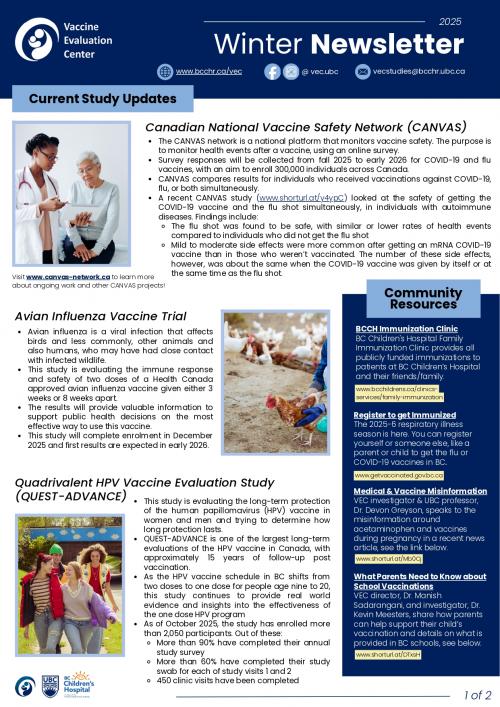Winter 2025 Newsletter
The Vaccine Evaluation Center’s (VEC) Winter Newsletter includes the latest updates from some of our studies, showcases recent publications, and provides valuable immunization resources.
Click on the image below to read our newsletter and see how your participation with the VEC contributes to life-saving vaccine research.
View Publications by Investigator

Dr. Alastair McAlpine

Dr. Estelle Morin

Dr. Ali Harandi

Dr. Kevin Meesters
Participate in VEC Research
If you are interested in joining one of our studies or
would like to be added to our contact list, click below.










